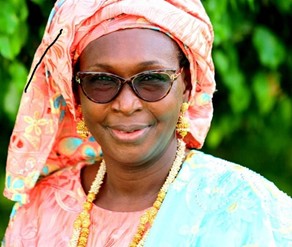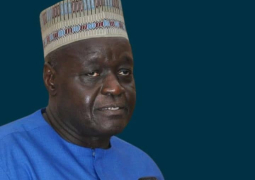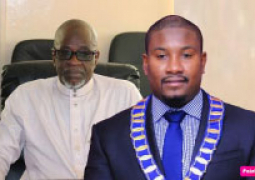
This comparative assessment of my perceptions of the People’s Republic of China (PRC) before my first visit in2017 and third sojourn in 2025 amplifies the impressive transformation of “China in my Eyes” through interpersonal exchanges.
In 2017, I was part of the Gambian delegation to the FOCAC Summit. For many years before this visit, the image of China I had was of a closed country under dictatorial rule with controlled freedom of expression for its people in public spaces or in the media.
The mass distribution of Chinese products gave me the impression of a country unwilling to transfer its knowledge to others, especially in the construction industry. Some had the view that Chinese industries pollute the air and the environment and produce low-quality products.
However, many Gambians can recall that in the 1980s, under the First President of the Republic of The Gambia, Sir Dawda Kairaba Jawara, a binary perception of China existed. The Chinese were supportive of our social sectors and provided technical assistance for rural development. Chinese agricultural experts piloted innovative rice production techniques at the famous Jahali-Pacharr rice fields, and their health specialists were deployed at the Bansang hospital, a key referral health facility in rural Gambia.
Unfortunately, the model to empower the masses in rice production in the 1980s was not sustainable. The country is still not self-sufficient in rice production and cannot maximise the knowledge gained from the Chinese due to a lack of sufficient agricultural equipment. The rice farmers could not sustain the bumper harvest, and the country relapsed into rice import dependency. It is noteworthy that over 70% of the rice consumed in The Gambia is imported, which is undesirable for the people.
The Chinese technical assistance that Gambians enjoyed in the 1980s was abruptly halted during the dictatorship period of 1994 to 2016 due to the diplomatic rupture between Banjul and Beijing.
With the emergence of a new democratic government in 2017, The Gambia, under the leadership of President Adama Barrow, mended its historic Sino-Gambian ties under President Xi Jinping, resulting in massive support for The Gambia's new National Development Plan - YIRIWA Programme aimed at alleviating poverty through equitable development.
The leadership of President Adama Barrow made a policy pronouncement to ensure that development reached every part of the country under the YIRIWA Programme. However, the government relies heavily on donor partners' support to realise our development plan, and most of them from The Gambia's traditional Western partners, attach conditions that may hinder the speed at which the government wants to implement and realise its development-oriented poverty alleviation goals.
The partnership with the PRC brought a reciprocal win-win solutions for both countries. While The Gambia enjoys infrastructure and technical support from the PRC, it also supports the Chinese ‘One China Policy’ at the multilateral level.\
The partnership and cooperation between The Gambia and the PRC include capacity building and the strengthening of people-to-people relations. I was privileged to be nominated alongside other colleagues to attend a seminar on ‘Public Service and Poverty Alleviation in Developing Countries from September 4th to 17th September, 2025, in China. This seminar enhanced my understanding of the Chinese governance system and the lifestyle of its people. China's opening to the world provides an opportunity for knowledge sharing and a better understanding of its approaches and strategies for people's participation in governance and nation-building, encompassing the implementation of its poverty alleviation policy.
The PRC operates a one-party system - the Communist Party of China (CPC), under the leadership of H.E. Xi Jinping, sets its policy for poverty alleviation and other policies to guide its overall development agenda and international relations. All the government agencies, headed by members of the CPC,commit to realising the objectives of the poverty alleviation policy, from the central government to the village level.
Lessons learned during the two-week ‘Seminar on Public Service and Poverty Reduction’ for officials from ten developing countries, in September 2025, exposed us to the techniques the PRC uses in the organisation, implementation, monitoring and evaluation, funding, data collection and knowledge-sharing. These processes include concepts of democracy in identifying poor households and individuals, data collection and validation processes that allow villagers to openly express their views on the eligibility of individuals or households. During the monitoring of the implementation process and evaluation of the poverty alleviation programme, accountability techniques are applied, and anyone found wanting faces the consequences.
The Chinese programme for poverty reduction is derived from the needs of the communities and influenced by the pronouncement of the leader. For instance, at the 18th National Congress of the CPC, President Xi Jinping announced a new direction for the country and his policy pronouncement is implemented at all levels of Chinese institutions, from national, provincial, municipal, district, town and village levels.
It operates through its party structures, and the government employs officials among its party members at all levels to serve as Secretaries - the official government representatives who oversee public service programmes, including the implementation of the President's poverty reduction programme.
Data on the identification of beneficiary households and individuals go through a vigorous validation process. The data is published at the village level, allowing community participation to confirm or modify. Monitoring and evaluation methodologies, as well as independent research, are also conducted through the validation process. These processes promote transparency, democratic concepts of citizens’ participation and accountable systems.
There are three remarkable levels of monitoring and evaluating the Poverty Alleviation Programme in China. At the village level, the Secretary of the CPC who is posted there ensures continuous involvement and monitors the implementation of the poverty reduction and rural revitalisation programme. A separate monitoring team will also undertake Monitoring and Evaluation to validate the data, and independent researchers from separate institutions like universities would also engage with the data to validate it. If there is any mismanagement, the Secretary of the CPC at the level where the wrong- doing occurred would face the consequences.
Three tiers are used to fund the poverty reduction programme in China: the central government's national budget, the municipal budget and through private investment.
The central government is responsible for constructing infrastructure such as roads, bridges, electricity, water, education and health facilities in rural areas. Public Servants from different sectors are posted in villages, includingmountainous areas, to ensure inclusive and accessible development.
Each province or municipality will endeavour to provide social services and attract investments in various sectors including specialised industries. The “zoning” of the country allows specialised industrialisation of products for in-country consumption, creating jobs for the host and surrounding villages. In some industrial zones, the production is for the export market. In the agriculture zone, farmers can lease their land for annual income and work for the investment as well, while others maintain their private farms. The public servants are available to provide technical guidance at the decentralised level.
Villages have social centres, and can be used for multiple purposes. Each area has a school, health facility, access to electricity and communication networks. There is a collective approach that supports poor households, and through this, the people improve their living conditions. They are assured of modern housing, clothing, health insurance, compulsory and free education for their children until they complete the secondary level.
Rural communities are revitalised with good housing, security and dignified living standards. While maintaining the natural environment, green mountainous forest cover in rural China, is woven with modernised housing schemes.
Coming from Africa, it was difficult to believe that the province visited, Sichuan, was defined as rural because of the decentralised development in every aspect of life. There are vendors and branded enterprises everywhere. The eliminationof abject poverty and the modernisation of provinces are also reversing the migration trend, with people going back to live and work in their villages.
The management of poverty alleviation and rural-urban migration have encouraged young people in villages to learn skills in agriculture, engineering and other skills they can use to advance development in their communities. A group of trainees were found in a session, using drones in agriculture during a visit to Nanbu County, and a drone from Yi longHospital was transferring medication to a remote village.
China controlled its development agenda to eradicate absolute poverty through innovation, creativity and modernisation, and preserving its cultural heritage, instilling a sense of responsibility and duty in its citizens. While the state provides basic social services, citizens have the civic and collective duty to maintain and improve them as well as keep the environment clean. Responding to climate change, recycling bins were visible in the communities visited, transforming waste into either animal feed or manure, thus contributing to sustainable organic farming.
China's opening to the world is boosting tourism in rural areas by allowing and maintaining development that is in harmony with the natural environment. New settlements are developed to preserve their cultural heritage and as tourist attractions. Hotels promote their local cuisine while catering for the special needs of international guests.
The use of information technology to share information and knowledge is key. Competition at the village and district levels is another form of information sharing and motivation for the villagers. To share its best practices, international seminars such as the one on Public Service and Poverty Reduction in Developing Countries are organised.
My conclusion is that respect for leadership with a vision, collective commitment to public service, respect for regulations and laws and discipline in the execution of the national agenda made it possible for the People's Republic of China to eliminate absolute poverty and revitalise rural areas for a viable economy and improved livelihoods.
I learned a lot about the strategies the Chinese used to eliminate abject poverty, and it changed my views of China I held before 2017. Visionary leadership, the collective commitment of the people to sustain their cultural heritage, adapting modern technology to enhance the livelihoods of the people in a green, sustainable environment, have transformed rural China.
I am optimistic that, as international participants from developing countries, we have a responsibility to adapt the best practices studied. Personally, the seminar has strengthened my conviction that the vision of our leaders, coupled with accountable and transparent funding mechanisms, calls for our collective commitment. Taking responsibility in our various roles at all levels of governance, guided by respect for the rules, regulations and laws of the land, we can accelerate the development of our countries and drastically reduce abject poverty.
To demonstrate seriousness in poverty reduction, it would require budgeting and allocating realistic funds for full implementation, using accountable processes, building public confidence that our citizens can collectively work towards the realisation of poverty alleviation programmes and uplift their livelihoods.
As public servants who have been chosen among many, we must endeavour to take the lead in implementing our national development agendas in our fields.
Indeed, China, in my eyes, has changed from being a country associated with poor-quality products and a suppressed people to a high-tech nation, continuously innovating to revitalise its rural settlements through collective participation. I have changed my perceptions of the Chinese, from people unwilling to share knowledge to people who share enough to inspire others to work harder and be innovative based on their own realities. We must be proactive and focused on achieving the national vision of bringing development to the people. We need more excellent infrastructure, including roads, bridges, electricity, water, food, safe housing and services, to advance education, healthcare, agriculture and industry. Through people's collective responsibility, we can assure a revitalized Africa and beyond. In my eyes, China is a shining example of innovation, and how collective participation of government, the people and private investors makes a difference.
Amie Bojang-Sissoho
Director of Press and Public Relations
Gambian Participant
30th September 2025





